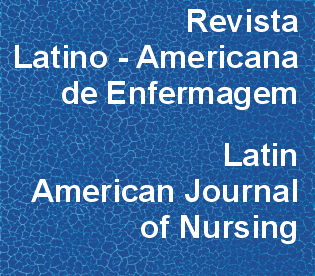Effects of relaxation on anxiety and salivary IgA levels in puerperae
DOI:
https://doi.org/10.1590/S0104-11692008000100006Keywords:
postpartum depression, anxiety, relaxation techniques, immunoglobulin A, psychoneuroimmunology, pregnancy, postpartum periodAbstract
This experimental study aimed to evaluate the effect of relaxation techniques on anxiety levels, and the relation between anxiety and the concentration of Immunoglobulin A. The study was carried out in a maternity hospital in a city of the State of Espírito Santo, Brazil. The sample was composed of 60 puerperae. The information on the variables: age, education, marital status, type of childbirth, and parity were collected with a specific form; the trait and state of anxiety were based on the State Trait Anxiety Inventory (STAI/IDATE); and the level of salivary IgA was obtained through immunoturbidimetry. The application of the Mann-Whitney, Wilcoxon, and Pearson's correlation statistical tests showed a significant reduction in the levels of the state of anxiety in the experimental group (p = 0.01); there was no correlation between the trait and state variables of anxiety and the salivary IgA level; both groups (experimental and control) showed trait and state of medium-intensity anxiety.Downloads
Download data is not yet available.
Downloads
Published
2008-02-01
Issue
Section
Original Articles
License
RLAE’s authorship concept is based on the substantial contribution by each of the individuals listed as authors, mainly in terms of conceiving and planning the research project, collecting or analyzing and interpreting data, writing and critical review. Indication of authors’ names under the article title is limited to six. If more, authors are listed on the online submission form under Acknowledgements. The possibility of including more than six authors will only be examined on multicenter studies, considering the explanations presented by the authors.Including names of authors whose contribution does not fit into the above criteria cannot be justified. Those names can be included in the Acknowledgements section.
Authors are fully responsible for the concepts disseminated in their manuscripts, which do not necessarily reflect the editors’ and editorial board’s opinion.
How to Cite
Effects of relaxation on anxiety and salivary IgA levels in puerperae. (2008). Revista Latino-Americana De Enfermagem, 16(1), 36-41. https://doi.org/10.1590/S0104-11692008000100006



